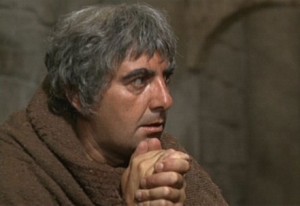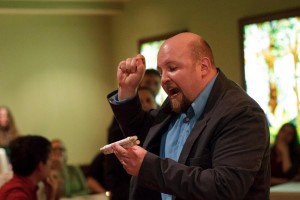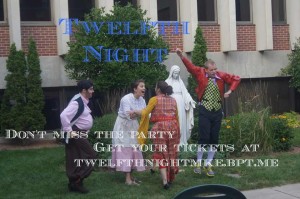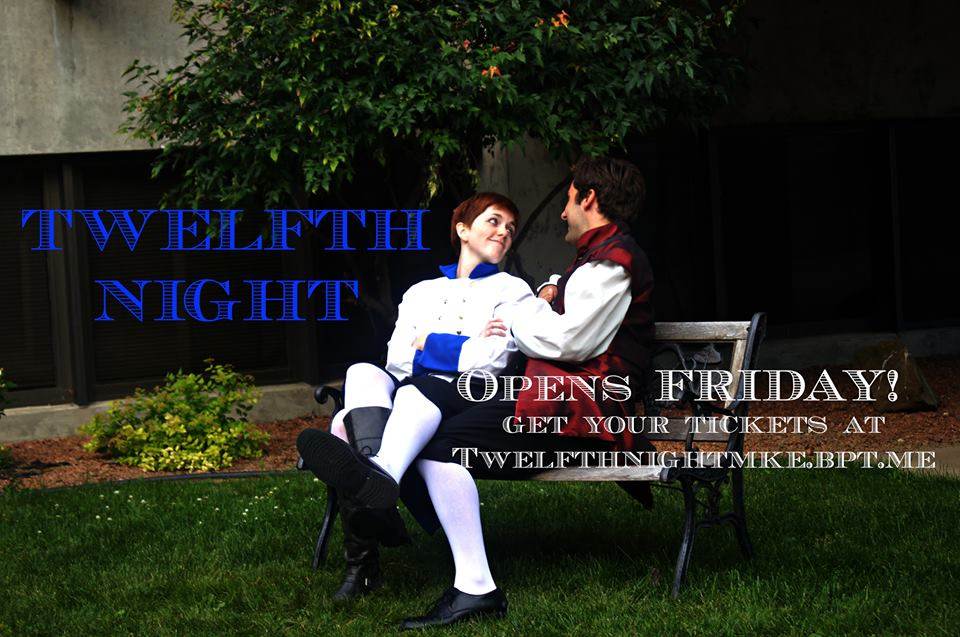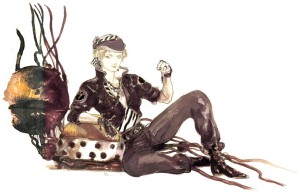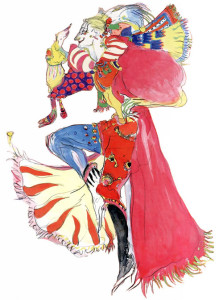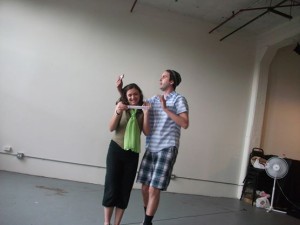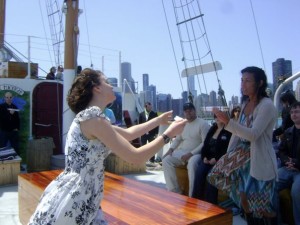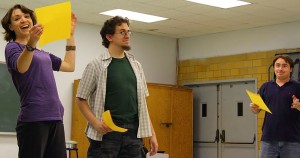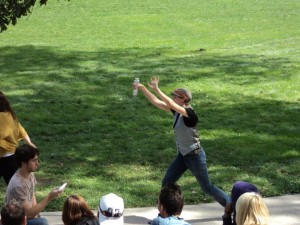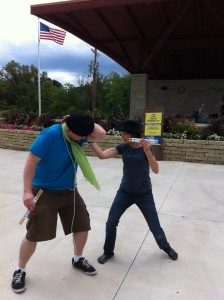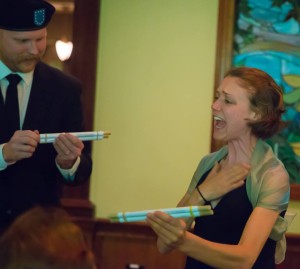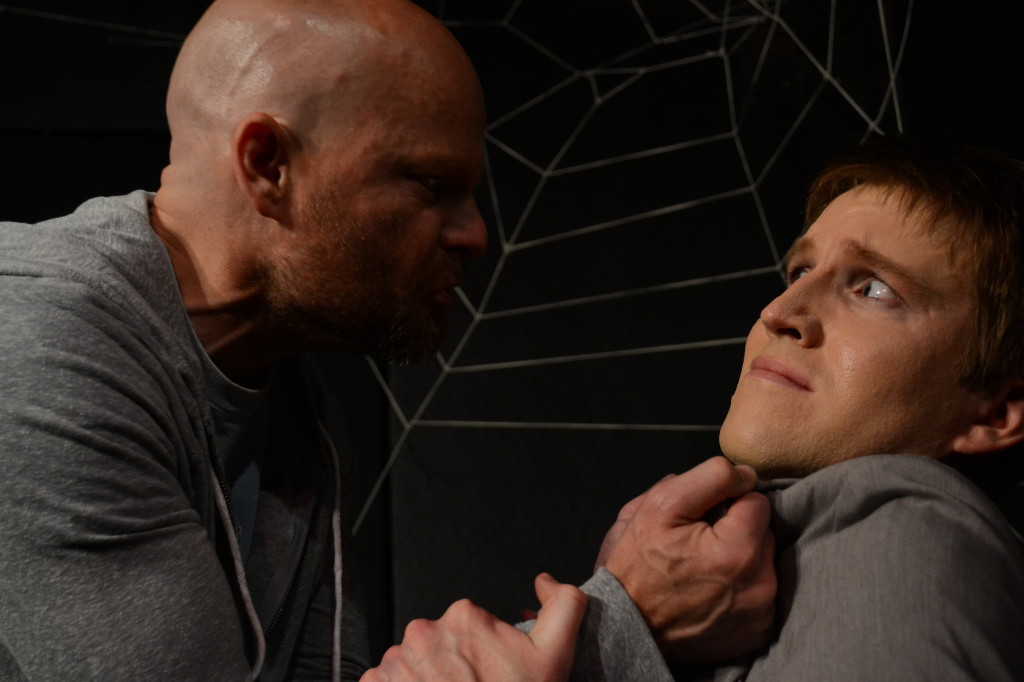 The following has been edited for spelling and grammar.
The following has been edited for spelling and grammar.
“Dear Jared,
I HOPE THIS LETTER finds you well. I was recently reminded that, having been traveling out of place and time, I can never really be sure in what order my letters are reaching you, or indeed if they are reaching you at all. I can only say, again and again, that I wish I had studied music more closely as a child, and especially that the balatina were powered by something other than diamonds.
My latest expedition for a power source brought me to the township of Capira. I’m not sure of the year, and indeed this lavish and fruitful countryside may well be on a planet not unlike our own, rather than the Earth itself.
Having been only recently deposited by the balatina’s clumsily orchestrated notes, I found myself without means of locomotion and with a rather limited food store. After taking a day to acclimate myself to the local atmosphere (high on oxygen, I suspect) and general weather (high on clear skies, I am happy to report), I set out from my campsite on foot in search of a diamond, which the balatina’s more sensitive instruments assured me was nearby.
CAPIRA, THE FIRST CIVILIZATION I found in this land, is essentially an enormous plantation. The Manse proper, hideously astute in its right angles and white washing, slowly and inexorably rose into my eyes from perhaps three miles away. The sight of civilization of any kind is often a cause for joy in my weary travels, and especially (I confess, with some humility) civilization that seems to bear some similarities to my Eurocentric homeland. It is a comfort to me in my divers strange wanderings.
Long before reaching the Manse, I came upon the Fields. I was immediately repulsed by the strong suggestion that the abominable practice of slavery was alive and well in Capira. I further confess, to my shame, that I was shortly relieved to see that these slaves came from all manner of nationality and appearance, and that I therefore might have little fear of bondage in my search for the diamond. This self-serving alleviation, like the initial outrage, was soon supplanted by a most curious observation.
I HAVE BEEN FORTUNATE and – as you might say – privileged enough to have encountered few instances of slavery in my travels. Yet to date, each time I have seen it, I have been heartbroken by the utter helplessness, the purely resigned and defeated attitude of this barbarous crime’s victims. Not so with Capira. The slaves working the fields – and they were indeed slaves, as soon confirmed by the presence of rod-bearing overseers – were anything but resigned. They worked slowly and spitefully, and seemed to hold little fear of their oppressors’ weapons. They muttered curses and offered angry eyes to their supervisors. No songs of perseverance were sung, nor indeed did the despicable masters hold much contempt or fear for their charges. Many slaves were threatened, but all seemed to be done via bitter routine.
Evidently unnoticed, I continued to walk through the fields toward the Manse unmolested. Vegetables looked to be the primary product: green carrots and various roots that shortly confirmed this was no Earth that I knew. The oppressed peoples were currently in the process of begrudgingly and un-industriously harvesting them. Many an overseer raised his or her rod, and many offered a vicious word, but no violence was offered.
That is, until I passed halfway through the Fields. Still unnoticed or unacknowledged, I stepped within mere meters of a slave who made quite a ceremony of throwing down his vegetable sack and declaring “These accursed crops are not ripe, and you know it! Pluck ’em yourself!”
At this, all the overseers were galvanized. I watched a burly putty of a woman charge like a steam engine, raise her rod high, and smite the unfortunate rebel on the back. I must again confess my shame, that confusion and shock left me frozen as a second, third, and fourth strike took the victim. It was only on the fifth, as other overseers began to close in with their own weapons raised, that I lifted my empty hand in peace and intervened.
“Hold!” I called out. “I am a stranger to your lands, but out of courtesy I beg you to spare this man for my sake.”
As you may or may not have read by now, I once had the pleasure of floating in an air-tight bubble in the greater ‘eastern’ extremes of our galaxy. The silence that met my plea reminded me strongly of that voyage.
At great length, the thugs lowered their batons, and the bulldog of a warden growled an inquiry at me, “Who and what are you?”
“My name is Pollywog. As for what I am, I can only declare that above all else I am free, and humbly wish that for all others as well.”
A new, clearer, stronger voice answered, “If you are free, then come and be welcome as our guest.”
I LOOKED ABOVE the shoulders of my erstwhile enemies. There, sitting on a beast that was almost entirely not like a horse, was a well-dressed man who must have happened upon us during the tumultuous quarrel. “Sir,” I sued, “I will most happily make myself your guest, if you will honor my request to spare the hide and bones of this poor man. And any other.”
The man (I shall give myself the indulgence of calling no slaveowner a gentleman) sniffled in response (and as I have said time and again, a single sniffle tells you multitudes about a life form). Presently, he answered, “Out of line though he may be, Patroysis is right. These crops will ripen tomorrow, and thence shall they be picked.”
An enormous, dare I say adolescent, moan came up from the slave-drivers. It was then I noticed that there was almost one overseer for every three slaves, an inordinately large amount in my limited observance. I had little time to descant on this, however, as a brace of butlers soon appeared to usher me forth and into the Manse.
AS WE NEARED the seat of opulent oppression, my eyes finally fell upon the surrounding Quarters. A large collection of small, cramped, and ramshackle huts encroached on the Manse from either side. They were in remarkably poor repair, even for slaves’ quarters. I inquired of them, and you can imagine my surprise when a butler informed me that those were the servants’ Quarters. The slaves slept outside in the Fields. “At least, once it’s too dark to see, they do.” I nodded at this, and cared not one whit if the speaker observed my sneer.
I pray you forgive my hypocrisy in accepting the hospitality of these singularly brutish people, but as even you have said: one must hesitate to condemn even the most wicked of societies, until the foundation of their superstitions and prejudices is made clear. I readily admit, in addition, that I felt certain the diamond I sought would be within the Manse itself, and that I might more easily obtain it as the guest of these repugnant slavers than their adversary.
The yellow sun was just setting as we stepped into the powder-blue walls of the Manse. Violet and red tapestries abounded, woodworks of numerous diversity and quality testified a culture far richer and more multifarious than anything presented on this odious plantation. Strings played, like a cello yet softer or perhaps – I might even say – muggier. The song was a bit fast for a relaxing dinner I felt, but such are the vicissitudes of culture.
I WAS SEATED at the foot of a gargantuan dinner table, one of three. I was again surprised to find that the privileged oppressors (usually a powerful minority) seemed to outnumber the slave-drivers and indeed almost equaled the slaves. Curiouser still, while many relations could be spied among the well-dressed diners, this was clearly not a single family but many different ones combined. Indeed, the matriarch who sat at the head of my table showed no familial resemblance to anyone save a loud and rather spoiled boy who sat near the foot of another table entirely, continuously banging his glass on the maroon tablecloth and demanding his ever-spilling drink be refilled by his abused servants.
And the servants! Impeccably dressed, poorly behaved, and outnumbered by their employers by a full half! In what other land do the powerful oppressors outnumber their victims? My moral outrage was quelled again and again by pure shock and confusion. And these servants: the slaves could have taken lessons in obstinacy from them. Haughty in manner, deliberately clumsy, often found loafing and gossiping in full view, and frequently offering smirks, snide remarks, and overt insults as response to orders. It was wholly remarkable.
Yet rest assured, the masters gave as well as they got. That rotten brat with his banging glass was by no means the most boorish occupant of those three crowded tables. Shouting, vicious and personal insults, unnecessary demands; their cruelty toward their servants was petulance at its finest. They deliberately spilt drinks; they demanded second courses after a single bite of the first; they commented on their servers’ appearances; one grown man even flung small bits of his food at a maidservant who had been pointing and laughing at a nearby woman. I was utterly astonished.
When dinner first began, my neighbors offered some polite inquiry to my home, my business, and my destination. I was unable to bring up the subject of diamonds, however, as the schoolyard chaos that dominated this little society quickly arrested the attention of these neighbors. I felt largely alone as I dined – and found that my food was relatively well-prepared and politely served, for which I thanked the staff courteously and effusively – and my postulations began to grow.
MY FIRST THOUGHT was that these beings, who appeared so much like you or I were in fact a very different species still in the stages of youth. I wondered if they were in a sort of pupal stage, and that great maggot-like nannies might appear at any moment to stop their racket.
Another thought: was this perhaps some self-sustaining asylum, where the most infantile of the mad had poisoned the behaviors of everyone else? I quickly dismissed this, however, as the prejudicial conclusions of a traveler still sadly (yet blessedly) ignorant on the natures and diversity of madness.
I will not bore you further with the many hypotheses I came up with during my surprisingly restful dinner (hive-minds are ever in my mind, alas). The dishes, I should mention, were mostly spiced roots and jellies, some pastries, and beautifully arranged fruit bowls. I managed to grab a single banana-like object that actually tasted much more like a tangerine, before the rest of the nearest bowl was toppled over by the most exuberant member of my table. One redeeming feature: these barbarous slavers were evidently vegetarian.
IN LESS THAN AN HOUR, the horrid dinner was through. As we vacated the dining hall for the main hall, I was livid to see several diners tossing uneaten food on the walls, out of windows; they half-chewed some and spat it out on the floor, and to top everything, all three massive tables were upended and cast upon the floor. Several of the younger diners, and an embarrassing amount of older ones, pointed and laughed as the servants groaningly began to clean up. I also saw, aghast, that the servants fed themselves on leftovers. These masters were ruining food for no other purpose than to deprive their servants of it.
I have always flattered myself as even-tempered, someone who avoids altercations. However, at this final insult I was compelled to demand of the matriarch, “Madam, by what justification can you deprive those who feed you of their own food? What can possibly encourage such behavior?”
Before she could answer, the most exuberant man from my table bellowed, “Oh, they’ll have their fun soon enough.” Everyone nodded and murmured, and a strange sense of regret suddenly permeated the room.
Now that the battle of dinner was over, the cello-like strings could again be heard. Not much for conversation, the massive ruling class sat in relative silence, appreciating the tune, slower now than the uptempo routine that had presaged the dinner.
I WAS TORN in three directions. First off, I was of course thinking of where to find a diamond to power the balatina. I had quite a few in reserve to use, but as I have said before: ever since the narrow escape from Genghis Khan I have made it a rule to collect an average of one diamond from every place I visit – especially if that place is relatively peaceful. Second off, I was genuinely curious about what social structure could have simultaneously birthed such beautiful art and such barbaric manners. Third off, I found my hosts so thoroughly disgusting inside and out, that I was tempted to bid them all goodnight and leave at once.
But then, naturally, a fourth thought entered my head. No one seemed happy with the current arrangement of affairs. Was it so wild to think, then, that I might talk them all into a change? I resolved, with no small amount of cowardice, to embark on this challenge the next morning. I was anticipating a sleep in a feather bed, and I must again confess my weakness: it had been over a month of my own time since I had slept anywhere other than the ground.
At length, the music ended. It was then that these people showed me their existence was not a total waste.
THE CHILD STOOD, the irksome glass-banging boy. Without preamble, without ceremony, and without provocation, he began to recite a poem. It was an epic tale of a little girl on a voyage to find a pet that had run away: she traveled across oceans and through skies, and was finally reunited in a strange land from which they could never return. As you might suspect, it moved me no small amount. It shakes my heart to say that most of the words have left me, but the following stanza, simple though it is in comparison, is still within me. It was repeated several times, but not often enough to be called a chorus:
She was a pulse encased in flesh
For th’ Pulse did draw her forth:
And where that pulse did deviate,
Her body, spirit, breath did fly.
It is strange in translation, I realize, especially when written down, but it was achingly and extraordinarily performed. A masterpiece that was soon forgotten and drowned out by a roomful masterpieces.
Everyone had something to share. Some had painted incredible landscapes and portraits during the afternoon. Some had composed arias, symphonies, dramas, or epics of their own. Others had prepared dishes of such succulence and depth as to make our dinners seem as dust. Anything that might call itself an art had at least two masters in that room, often more. There was simply not enough time for everyone to share.
IT WAS WELL AFTER MIDNIGHT – or what passes for midnight in Capira – when the beautiful slave-masters, the repulsive artists, finally and begrudgingly went to bed. A woman with whom I had no acquaintance showed me to a spare room, where a maidservant was waiting with fresh linens, an iced treat, and a harp-like instrument to play me to my sleep. I thanked the maid and asked her, if she could play this instrument, why was she a maidservant rather than an entertainer. Before she could answer, I then inquired if she was the cellist I had heard all night, and instantly complimented her on the beauty of her work. I had forgotten that these people probably did not know what a cello was.
The maidservant answered, as though it were obvious: “We all play music.” After a short and awkward silence, I heard the notes of the cello-like instrument playing somewhere nearby. It was deep, immense, and surely vibrated the whole house with its simple and utter presence. Cued by this, the maidservant sat at her stool and placed her fingers. Before she began to play, however, I heard oboes in distant rooms. A measure, then two, then four, then eight, and suddenly…
As the harp’s first string was plucked, I heard an entire orchestra, throughout the Manse, playing their wicked masters to beautiful rest. Each was alone in a single room, yet they all played in perfect unison, following the honored lead of that cello. I was brought to tears with the wonder of it.
I stood there, weeping, and then a most extraordinary thing happened. The maidservant observed my tears and, for the first time in Capira, I saw a small, genuine smile. It was not a jeer of mockery, nor an abusive laugh, nor a jaded smirk. It was subtle and true.
I wanted to tell her how horrid it must be, to live so surrounded by such perfection that you are inured to it, and not moved as profoundly as I was. It seemed a living death to me, to have such beauty at your constant beck, and yet to see it as nothing more than a frivolous pastime. But I could not speak. Nothing would induce me to interrupt that song.
It was at least an hour before I finally bedded down. It was at least two more before I finally fell asleep, so desperate was I to drink in every note. The music played the whole time.
DESPITE MY LATE NIGHT, I believe I awoke no more than two hours after sunrise. The maidservant (whose name I later learned was Kalanad) was gone, presumably out to sleep in the fall-down huts of the Quarters.
After my numerous demonstrations of demureness and cowardice the previous night, I finally became adventuresome again, and ventured uninvited out into the Manse. It was a ghost town. Absolutely everyone was still asleep. The building was spotless, even the dining hall. How these poor creatures had found time to clean such an enormous home after hours of playing, and still find time to sleep, was beyond me. The only thing that escaped the attention of the cleaners was the kitchen: it was a reviled pit of filth, and I shuddered to think I had eaten food that was prepared there.
I spent over an hour taking in the engravings, portraitures, windows, and every piece of art the Manse had to offer: evidence that even monsters were capable of beauty. Eventually, it came to my attention that I could not hear the sounds of labor outside. Indeed, my occasional glance out a window had revealed no sign of work without. It was now closing on noon (or whatever they called it in Capira).
I STEPPED OUTSIDE, and immediately almost tripped on a sleeping form. The very slave who had flatly refused to harvest was lying spread-eagle before the front door. He and several other slaves had made a human carpet there, evidently preferring to sleep on a wooden floor than in the Fields.
Although I did not trip, I did stutter and right myself, and the resulting tremor awoke one of the sleepers. She sat up straight, rubbed her eyes, looked about; and her face lit up like a child on holiday. She leapt to her feet and cried out, almost as a cockerel would: “Freedom!”
Like a battle cry, it moved the slaves to action. Every single one of them scrambled to their feet, dusted themselves off, stretched out their aching joints…
Then turned to me.
The man himself, the one on whose behalf I had interceded (if a bit belatedly) raised his surprisingly un-calloused hand and rested it on my shoulder. “Friend,” he began, “you are in the way.”
HAVING NOWHERE TO MOVE, I stepped back into the Manse to one side. The slaves instantly flooded into the building, cheering and shouting and making a terrible clamor. Yet for all their chaos, I noticed they performed no property damage. No painting, no couch, not even a window sill suffered in the slightest.
What they did do, was charge into the bedrooms, where I was able to hear them rudely ejecting their erstwhile masters. “Get up, lazy creep!” they shouted. “Make me my breakfast, sluggabed!” some hollered. Others cried, “That kitchen is a mess! Hop to it,” despite the fact that none of them had set foot in the kitchen. Still others cried out, “Those crops won’t pick themselves, you witless brutes! Those worthless slaves are sleeping in your beds in stead of pulling out our victuals! Hop to it, worms! Hop! Hop!”
The masters, the crude poets, the heartless creators, were all pushed out of their rooms and out of the house. Every single one of them wore nothing but their underwear. In short order, the former slaves emerged wearing the fine clothing of their vanquished adversaries. From there, most made their way to the massive plantation windows, no doubt to watch the coming altercation between the practically-nude former-aristocracy and the still-sleeping servants.
The pants-clad courtiers wasted no time and charging into the ramshackle Quarters. “You lazy, gutless mongrels!” they cried out. “Who gave you permission to sleep in our beds, you presumptuous toads!” Kalanad, who last night had produced such miraculous melodies, was forced from her fallen-down home in rags and ran to the safety of the Fields.
The former aristocracy soon emerged. They were now dressed as butlers, maidservants, chefs, and of course slave-drivers. These last many brandished their rods and commanded the newly-enslaved to get to work. The slaves, who mere hours ago had produced a gorgeous symphony in unison in separate rooms, began to gather up sacks and pull roots from the ground. They muttered. They snarked. They grumbled and moaned.
I turned from the window to the man whose beating I had cut short. “Sir,” I asked, “what is your name?”
“Patroysis,” he answered, “and welcome to our estate. Please, stay for breakfast.
BREAKFAST WAS SERVED well after noon. It was happily more sedate than dinner had been, as everyone was still groggy from sleep. Everyone seemed entirely accustomed to their new roles, however.
I made it a point to sit near Patroysis as we ate, so I could ask, “Sir, by what means have you finally decided to overthrow your captors, and how could you have so easily accomplished this, without casualty nor even injury, it seems.”
It was then that Patroysis, the patriarch, explained what you may have already divined. The people of Capira called themselves a social equacracy, wherein everyone was considered equal to everyone else. “This is hardly the world’s first experiment with equality though, ” he explained between bits of something that looked like broccoli by tasted delightfully of bacon. “They inevitably break down because, hey, someone’s got to make all the decisions. And he’s got specialists he needs to bring in, and maybe some friends who could use his help, and just like that everyone’s not equal anymore.” He smiled knowingly, “This way, everyone gets a turn being a boss, everyone gets a turn to be downtrodden, and everyone gets a turn to feel neither privilege nor righteous indignation. It’s a pretty good cycle, we’ve found.”
After breakfast was finished, most of the new aristocracy spent the remainder of the day creating or working on art pieces. A few went riding out on their horse-ish mounts. Dinner came all too soon, and proved to be another puerile affair. But then came after-dinner, and it was again incredible. And then at last came bedtime. The same song, played by those who last night had been the listeners, was now played for those who last night had slept out in the Fields and on the veranda. Most amazingly of all, there were subtle differences, brought about either by inspiration or slips of memory. This song, played in separate and flawless unison, was evolving each night. As I slept, the woman who had been the Matriarch the night before played on something not unlike a dulcimer. I wept again. I thanked her. I slept as angels slept.
IT WAS ANOTHER FULL DAY before before I enquired about a diamond, having seen no jewelry about the estate. I was told that one of the now-butlers had created a device capable of applying such otherworldly pressure to coal that in a matter of a few weeks it was crushed into a diamond. This method had been applied three times, then the device was discarded: the diamonds were functionally useless, and therefore the device was as well. All the same, when the butler was a gentleman, he was praised by his peers for his ingenuity.
They offered me all three diamonds. I accepted. The butler himself hurried off to a junk store in an attic of the Manse and produced them from a tiny old bag with a hole in it. This strange voyage won me three more diamonds, and I felt no guilt in accepting them.
IT WAS ON THE FIFTH DAY that I decided to leave, and upon which I am writing this letter that I fervently hope you will receive. I felt I had learned enough, and more importantly grumblings were emerging about my living the life of the landed gentry every day, and if special exceptions are being made why shouldn’t so-and-so get to sleep in the Manse every night as well? I am still unsure exactly what I should have done with this tiny civilization.
Just before I left for my old campsite, gifted with several roots and delicious pastries, I asked Patroysis, “Is there no better way to run a society than this?”
“Can you think of one?”
I had expected this, but was still not sure how to articulate my answer. “But the dinners,” I said, “The bitterness, and anger, the resentment. Everyone always seems so disdainful, so careless, so mean-spirited.”
He raised an eyebrow. “Are people otherwise, where you come from?”
It was a bit rude of me, but I left without response, nor even a goodbye.
I HAVE RELOADED and tuned the balatina, and it keeps as good a note as ever, for which I am thankful. I do not suspect I shall ever play this confounded tool as well as even the least-talented of my recent hosts. Although I longed to hear it played by a virtuoso, I wisely chose to keep it hidden from them, lest they spread their bizarre politics throughout all history and all universes.
Capira is a bitter place, and even such temporary slavery is horrible at best. Yet within each of these three castes the citizens are good to each other. They show more love for their particular sub-societies than many back in our homelands, if memory stands untainted by years and miles. And dimensions, I sometimes wonder.
The ground is hard after a featherbed, and the silence of the night makes me strain to hear the faintest reports of the music played on the Manse. Still, there is something honest on this springy turf, and something pure in this silence. Tomorrow morning, when I play the balatina again, I hope it will deliver a naive-but-still-hopeful creature to a place more loving, less predicated on voluntary misery, and always with more faith in all its life.
Yours as always in respect and mutual affection,
Your erstwhile companion in travail,
Pollyanna,
Time and place uncertain”

